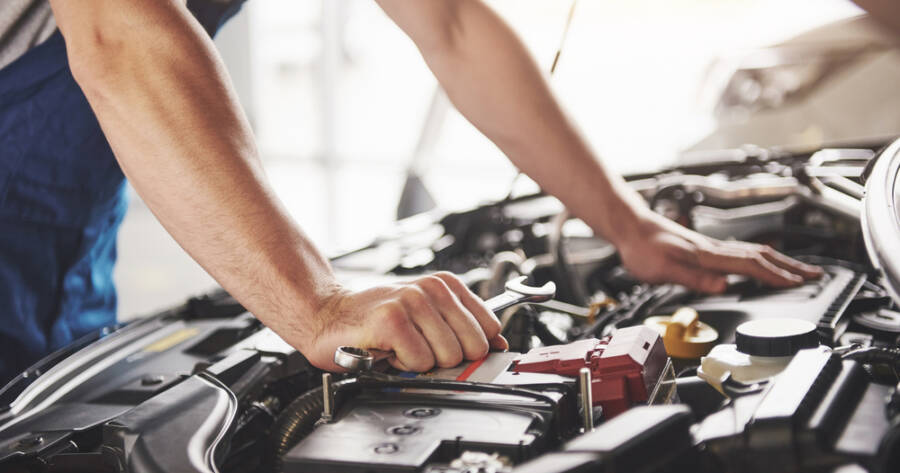Owning a car is a significant responsibility, and proper maintenance is crucial to ensure that it runs smoothly and lasts for years. As a new car owner, understanding the basics of car maintenance can save you time, money, and prevent unexpected breakdowns. Regular maintenance helps keep your car in good condition, improves safety, and enhances its resale value. Explore some essential car maintenance tips every new car owner should know.
1. Regularly Check and Change Engine Oil
Engine oil is the lifeblood of your car’s engine. It lubricates the moving parts, reducing friction and preventing the engine from overheating. Over time, oil breaks down and becomes less effective, so it’s essential to check your oil regularly and change it as needed.
Most cars require an oil change every 5,000 to 10,00 miles, but this can vary depending on your car’s make and model. Always refer to your owner’s manual for the manufacturer’s recommendation. If you’re unsure about when to change your oil, some cars have an oil change reminder light that will notify you when it’s time. Regular oil changes are a relatively inexpensive way to keep your engine running efficiently.
2. Monitor Tire Pressure and Tread Depth
Tires are the only part of your car that comes into contact with the road, so it’s important to keep them in top condition. Proper tire pressure improves fuel efficiency, extends tire life, and ensures your car handles well on the road. Check your tire pressure at least once a month, and before long trips. Use a tire pressure gauge to ensure the pressure is at the recommended level, which can typically be found on a sticker inside the driver’s door frame or in your owner’s manual.
In addition to checking tire pressure, monitor the tread depth of your tires. Worn-out tires can reduce traction and increase the risk of accidents. Use a penny test or a tread depth gauge to check if your tires need replacing. If the tread is low, it’s time to invest in new tires.
3. Replace Air Filters
Air filters are responsible for ensuring that the engine gets clean air, which is necessary for the combustion process. Over time, air filters can become clogged with dirt, dust, and debris, reducing engine efficiency and fuel economy. A dirty air filter can also cause your car to run less smoothly and affect engine performance.
Most air filters should be replaced every 12,000 to 15,000 miles, but you can check your owner’s manual for specific recommendations. If you frequently drive in dusty or polluted environments, you may need to replace the air filter more often.
4. Keep an Eye on Fluid Levels
In addition to engine oil, your car relies on several other fluids to keep it running smoothly. These include coolant, brake fluid, transmission fluid, power steering fluid, and windshield washer fluid. Regularly checking these fluid levels is an important part of maintaining your car’s overall health.
If any of these fluids are low or contaminated, it can lead to poor performance or even mechanical failure. To check fluid levels, consult your owner’s manual for instructions, as each fluid requires a different procedure. If you’re unsure how to check or top up a specific fluid, it’s best to have a professional mechanic do it for you.
5. Maintain the Battery
Your car’s battery provides the power to start the engine and operate electrical components. To avoid being stranded with a dead battery, regularly check its condition. Look for signs of corrosion around the battery terminals, which can prevent the battery from charging properly. Clean the terminals with a wire brush if needed, and ensure they are tightly connected.
Car batteries typically last between 3 to 5 years, but factors like extreme temperatures and frequent short trips can shorten their lifespan. If you notice your car is slow to start or the battery warning light appears on the dashboard, it might be time for a new battery.
6. Replace Brake Pads and Check Brakes Regularly
Your car’s brakes are essential for safety, so it’s important to ensure they are always in good working condition. If you notice any unusual noises, like squeaking or grinding, or if the brake pedal feels soft, it’s time to have your brakes inspected.
Brake pads wear out over time and should be replaced when they become too thin. On average, brake pads need to be replaced every 30,000 to 70,000 miles, depending on driving habits and the type of vehicle. Regular brake inspections and maintenance will help ensure that you stay safe on the road.
Essential Maintenance Habits for a Reliable and Long-Lasting Vehicle
Proper car maintenance is essential for ensuring the longevity and reliability of your vehicle. By staying on top of tasks like oil changes, tire maintenance, and fluid checks, you can keep your car running smoothly and prevent costly repairs. As a new car owner, adopting these essential maintenance habits will not only help you extend the life of your car but also improve its performance and safety. Regular upkeep may seem like a lot of work, but it’s a small effort that pays off in the long run.

